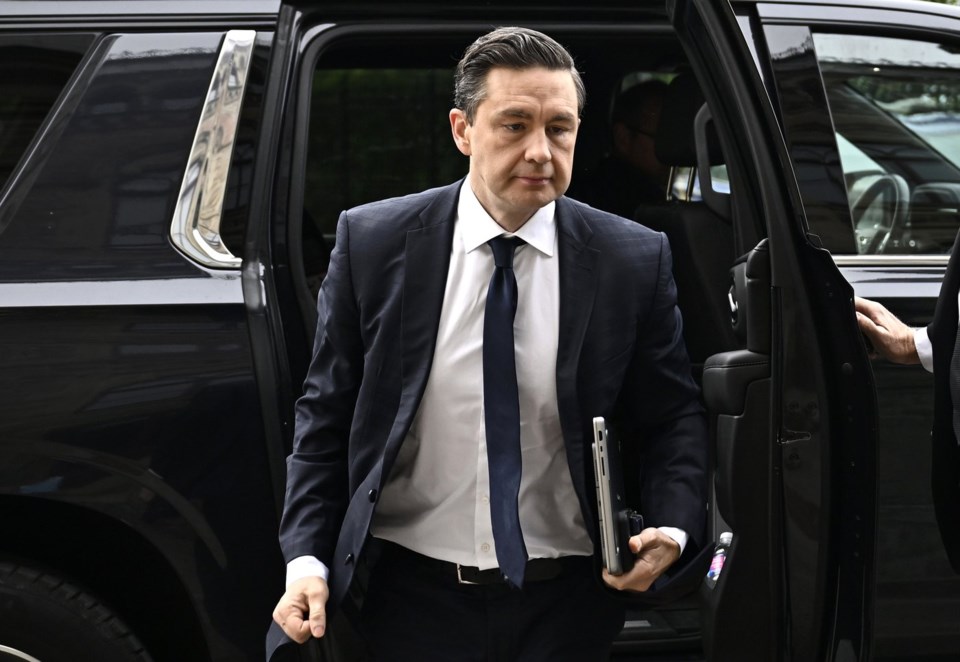OTTAWA — Conservative Leader Pierre Poilievre is in favour of mandatory, involuntary drug and psychiatric treatment for kids and prisoners who are found to be incapable of making decisions for themselves, he said at a press conference Thursday.
The Conservative leader said earlier this summer he was open to the idea, but needed to study the issue more closely.
On Thursday he said he's made up his mind when it comes to certain groups.
"I believe for children and for prisoners who are behind bars, there should be mandatory drug treatment when they are found to be incapable of making decisions for themselves," Poilievre said.
"For adults, again, I'm still doing a lot of research on how that would work."
Compulsory mental health and addictions care is being contemplated or expanded in several provinces as communities struggle to cope with a countrywide overdose crisis. Concerns have been raised about those proposals by mental health advocates who question whether compulsory treatment is effective, and civil liberties groups who fear for the rights of the patients.
Poilievre's new position on the issue appears to have solidified after the parents of 13-year-old Brianna Macdonald testified at a parliamentary committee about her mental-health struggles before her overdose death in an encampment of homeless people in Abbotsford, B.C.
Her mother, Sarah Macdonald, and her stepfather, Lance Charles, told the health committee Tuesday their daughter had serious mental-health concerns and began experimenting with several types of prescription and illicit drugs when she was only 12.
"Brianna's father and I would beg doctors to keep her in hospitals," Charles told the committee. "The doctors would overlook what we said and release her, sending us home with Narcan kits."
They would ask police to invoke the Mental Health Act and take her to the hospital when she threatened to hurt herself, Charles said, but the officers wouldn't take her against her will.
"There's no question in my mind that she should have been in mandatory, involuntary psychiatric and substance abuse treatment, rather than in a homeless encampment in a tent," Poilievre said on Thursday.
British Columbia's NDP premier announced last month that his government would expand involuntary care for people in mental health and addictions crisis, and that the province will open secure facilities for people who have been detained because they're a danger to themselves or others. B.C. is now in an election campaign.
The B.C. chapter of the Canadian Mental Health Association has expressed misgivings about the plan without better oversight over the mental-health system.
"A movement to detain more people under these current conditions and culture, without addressing significant gaps in the quality and effectiveness of care, will not lead to positive or dignified outcomes for people," the association said in a statement last month.
In New Brunswick, Progressive Conservative Leader Blaine Higgs has promised legislation that would allow someone with a severe addiction to be forced into treatment as part of his election platform.
Alberta Premier Danielle Smith has similarly asked her mental health minister to develop " compassionate intervention legislation" that would allow involuntary treatment for people who use drugs if they are a danger to themselves or others.
Poilievre has already promised to stop the flow of federal funding for supervised injection sites and a safer supply of drugs, and instead focus federal support on treatment options.
This report by The Canadian Press was first published Oct. 10, 2024.
Laura Osman, The Canadian Press


